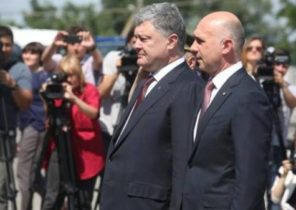After recently, Washington announced its decision to withdraw from the Treaty on open skies, the us administration and political analysts began to accuse Russia of systematic narushenijj conditions of this agreement. We, the Russian side is not going to make excuses. Our approach is described in detail in the appropriate comments of the Ministry of foreign Affairs of Russia and a number of Russian officials. Instead, we would like once again to draw attention to the importance of this Treaty from the point of view of maintaining stability and security in the Euro-Atlantic region.
Analyst at the Heritage Foundation, Patty-Jane Geller (Patty-Jane Geller) has recently given a description of the situation around the Treaty and Russia’s position on this issue in his article, which was published in the first edition of The Daily Signal, and then in The National Interest. Her criticism of Russia’s policy is unreasonable and self-explanatory.
We have repeatedly demonstrated, using specific numbers that the statements that Russia is not fulfilling the full terms of this agreement, are unfounded. At the same time, despite the absurdity of most of the charges, we have always demonstrated a willingness to discuss issues of concern to Washington. There is the Advisory Commission on open skies — the mechanism established under the Treaty on open skies, specifically with these goals.
For its part, we also have a number of complaints that the United States sometimes do not comply with certain provisions of the Treaty. In particular, they relate to the security of crews during flights over the territory of the United States, restrictions on the maximum range of observation flights over the Hawaiian and Aleutian Islands, and altitude for aircraft-observers. The difference is that we are ready and we have demonstrated it — to find mutually acceptable solutions to technical problems at the negotiating table. Meanwhile, Washington apparently considers it more important to get rid of the agreement which, as it seems, binds the United States in the hands and feet.
I will give just one specific example, which, on the one hand, demonstrate the groundlessness of the accusations of the United States against Russia, and with another — will help the reader better understand our point of view. But I would like to note that military experts, i.e. those people who are professionally engaged in the issues of the open skies Treaty, can always find opportunities to Express alarm.
For example, the United States declare that we will not allow American planes to fly over Kaliningrad. Technically this is only partly true. In fact, such a flight is not prohibited, although there are certain restrictions. I would like to note that the countries participating in the agreement have the opportunity to conduct observation flights over about 90% of the territory of the Kaliningrad region. Meanwhile, the United States do not allow Russian planes to fly over Alaska. Unlike the United States, the Russian planes can only cover 3% of the territory of Alaska. And where is the truth? Where is the balance of interests?
Almost 20 years of its existence, the open skies Treaty served as an effective mechanism for confidence-building and cooperation among States parties, including the Ministry of defence. So far, the contract allowed the armed forces to fly over neighboring countries. This allowed them to ensure that they are planned no aggression and no threat is not military activity. Thus, the contract helps to maintain the transparency of military activities (primarily NATO countries and Russia), reduces tension and prevents misinterpretation of the intentions of each party.
We believe that the contract still has great value. The importance of this channel of trade exchanges cannot be overemphasized, especially at a time when Russia and Western countries lack of trust and dialogue in matters of military security.
The exceptional value of the Treaty on open skies is also determined by the fact that he is one of the last legally binding agreements between the nuclear superpowers, contributing to the mutual understanding and transparency in the conditions of deep crisis in the sphere of arms control.
Despite the fact that the importance of this Treaty is obvious to almost all, Washington’s decision was not unexpected. You can just follow the trend of recent years, when international legal framework of arms control and nuclear non-proliferation step by step destroyed by a certain country. The United States withdrew from the anti-ballistic missile Treaty in 2002, of a Joint comprehensive action plan, in 2018, as well as from the Treaty on the elimination of intermediate-range and shorter-range last year. Now thrown into question the future of the Treaty on the reduction of strategic offensive arms. United States every time use the same scheme: they are unilateral actions always precede large-scale propaganda campaign and an avalanche of unsubstantiated accusations against others, especially against Russia, in violation to an agreement. We can observe the same scheme of action, and in the case of the open skies Treaty.
However, the situation with the Treaty on open skies is a little different from the situation with the ABM Treaty and the INF Treaty. First of all, none of the close and not so close allies the United States has not made strong accusations concerning the observance by Russia of the open skies Treaty, this means that the vast majority of participants do not consider the current situation as critical and do not see the need for the termination of this agreement. Even at the meeting of foreign Ministers of NATO countries in Brussels in may last year, the support for this decision by the United States against international security, was not unanimous.
Thus, in six months we may be in a situation in which NATO States (except the United States) that are not included in the Alliance of European countries and Russia will comply with the open skies Treaty. This means that they will give permission to carry out observation flights over their territories. But not United States! According to some sources, in such circumstances, Washington will be ready to allow their allies to use their observation planes for gathering information over Russian territory. There is no doubt that the allies will have America return the favor and share with her photos made. The question arises: what should Russia do in this situation? One well-known analyst, whose articles are frequently published in The National Interest, stands with a friendly warning: Russia should fulfill the requirements of the American President Donald trump, otherwise it will be worse.
The current situation demands that we all have to think seriously about the consequences of the impending us withdrawal from the Treaty on open skies. We need to take joint, coordinated effort to preserve an agreement that it is important for everyone. Any legally binding agreement is a reflection of the delicate balance of interests, rights and obligations of its participants.
Whatever the real reason for the refusal of the United States from the Treaty on open skies, it is obvious that all the parties to this agreement and the international security as a whole will lose. The European allies of Washington are fully aware of the increased risks to stability on the continent, and almost all of them criticize the intentions of the White house.
We share their concerns. Despite the fact that Russia, like the United States, has advanced national technical means (through which, if necessary, Moscow will be able to fill most of the data, first collected in the framework of this agreement), we appreciate the open skies Treaty in the first place because of its unique role as a tool for confidence-building and dialogue. In today’s volatile global situation, the international community cannot afford to abandon such agreements as the Treaty on open skies.
Anatoly Antonov, Russia’s Ambassador to the United States







